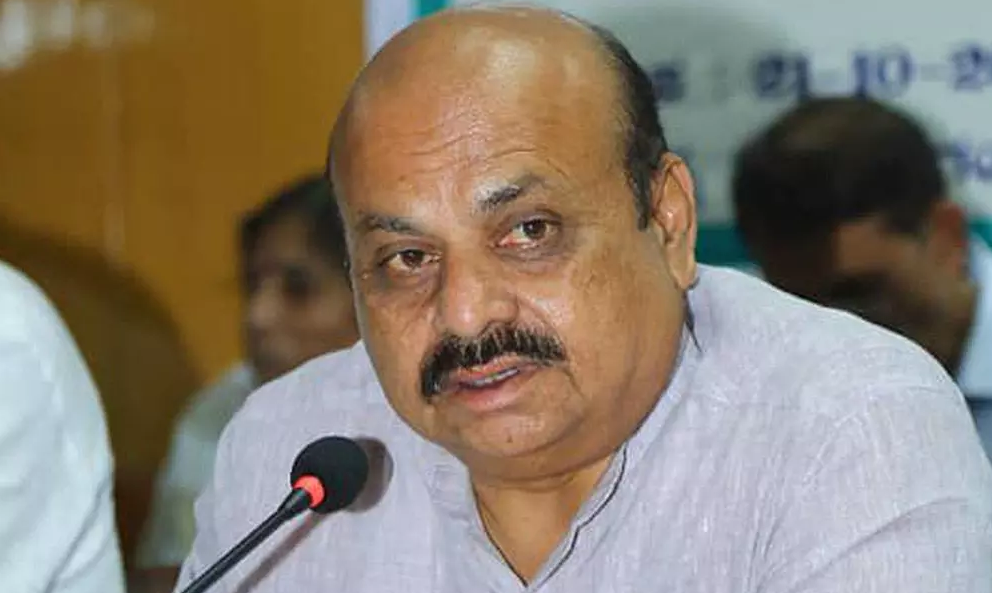
Behind BJP's decision to choose Bommai as Karnataka CM

A day after B.S. Yediyurappa resigned as chief minister of Karnataka, the BJP’s State Legislature Party on Tuesday selected Basavraj Bommai as his successor. Bommai was the home minister in the Yediyurappa government and, like his predecessor, is from the politically influential Lingayat community.
Among those who attended the meeting in Bengaluru were the party’s central observers for Karnataka, Dharmendra Pradhan and G Kishan Reddy, and general secretary and Karnataka in-charge, Arun Singh.
Yediyurappa’s two-year tenure was mired in controversies, from COVID mismanagement to corruption allegations against him and his family members and a sex scandal involving a cabinet minister. Besides, the biases in budgetary allocation and the growing influence of his son, B.Y. Vijayendra, in the political affairs of the state also evoked dissidence within the party and upset a section of the BJP legislators.
For the BJP’s central leadership, choosing Yediyurappa’s successor was not easy. Among the top contenders for the CM’s post were leaders from different caste groups – Lingayats, Vokkaligas, OBCs and Brahmins.
Also read: Yediyurappa resigns as Karnataka CM, breaks down announcing it
As Yediyurappa gave an indication of leadership change earlier this month, Lingayat sect seers rallied behind him and asked the central leadership not to dislodge him. While their attempts did not work, some demanded that a Lingayat sect member be made chief minister.
In 2013, when Yediyurappa moved away from the BJP and went on to form a new party, the Lingayat vote bank moved with him and the BJP secured a distant third in the election. So they could not antagonise the community.
Back in March, the Panchamasali Lingayats, a sub-sect of the dominant and politically significant Lingayat community, who demanded reservation under the Other Backward Classes (OBC) quota, called off their agitation after Yediyurappa sought six months to address the issue. He said he would take it up in a constitutional and legal manner.
The BJP’s decision to choose Bommai must be seen in that context.
Also read: Yediyurappa, who fathered the BJP, now set to take the final bow
Murugesh Nirani, the mines and geology minister from the Panchamasali Lingayat community, was a strong contender. He was lobbying in Delhi to clinch the post. Nirani is co-accused, along with Yediyurappa in the land de-notification cases that are pending in various courts. Besides, his family’s sugar business, Nirani Sugars, is accused of flouting tender norms in recent months.
There are now talks that the BJP may choose four deputy chief ministers and balance the caste equation, but analysts feel that would be a risky move.
“The Lingayat reservation is a boiling issue. If the seers withdraw their support, the BJP would have to rely on other caste groups. Rural Development Minister K.S. Eshwarappa, a Kurubas leader, is a force they can depend on,” Prof Muzaffar Azadi, a political analyst in Karnataka, told The Federal.
Now that Bommai has been chosen, the BJP will also have to placate the Vokkaligas. When the party came to power in 2019, they already had the Lingayat community’s support, but wanted to make inroads into the Vokkaliga belt, the stronghold of the JDS and Congress in the southern part of the state.
CN Ashwath Narayan and CT Ravi are two Vokkaligas the BJP can depend on. Narayan, the deputy chief minister, is seen as an educated leader who maintains a good image. Ravi, the national general secretary of the party, has a strong RSS background and is close to the BJP’s national organisation secretary, BL Santosh.

